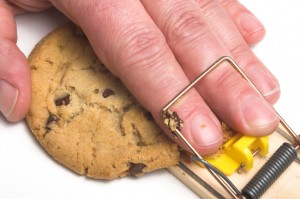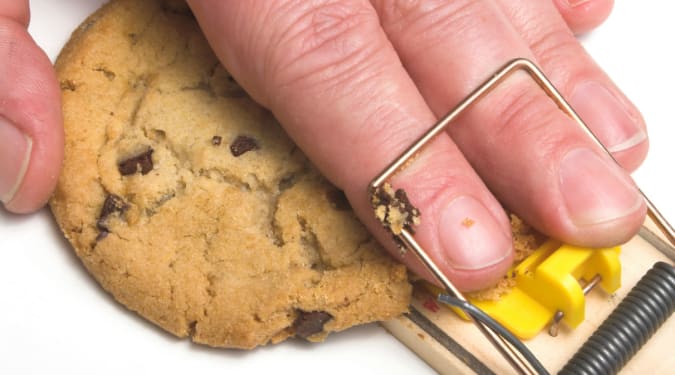 All health professionals want to see their patients and clients take care of their health and well-being. It’s true this isn’t particularly good for business, but we really do want to see people healthy. Statistics tell us the opposite; that people aren’t taking care of themselves. Rate of heart disease, cancer, diabetes and a host of other ailments are not declining. Baruch Hashem we now have better treatments so more people survive these maladies. But our quality of life would be so much better if all of us started doing at least the minimum in terms of taking care of our health.
All health professionals want to see their patients and clients take care of their health and well-being. It’s true this isn’t particularly good for business, but we really do want to see people healthy. Statistics tell us the opposite; that people aren’t taking care of themselves. Rate of heart disease, cancer, diabetes and a host of other ailments are not declining. Baruch Hashem we now have better treatments so more people survive these maladies. But our quality of life would be so much better if all of us started doing at least the minimum in terms of taking care of our health.
That being said, we don’t really have a choice in the matter. We have a Mitzvha to take care of ourselves. I write this column the day after we read in Parshat Ve’etchanan the obligation of V’nishmartem—that we must take care of ourselves. Chazal talk over and over again about this obligation in many places.
The Rambam (Hilchos Deos 4:1,14) writes: “Because for the body to be healthy and wholesome is among the ways of Hashem… therefore a person must distance himself from those things that cause his body damage… And they stated another rule relating to the health of the body: As long as a person engages in physical activity (= exercise) and works hard… no illness will attack him and his strength will increase.”
The Be’er HaGolah at the very end of Choshen Mishpat tells us there is not bigger Hefkerus than not taking care of one’s self.
The Yerushalmi says in Meseches Shabbos Chapter 14 page 14 תשעים ותשעה מתים בפשיעה ואחד בידי שמים But from this Yerushalmi alone it may mean that 99 die from the peshia of aveiros . However when we look at the Shailos and Tshuvas of the MaHarsham in the first Heilek it is clear that it is referring to the neglect (peshia) of not taking care of our physical health.
Soveya in an organization based in Baltimore and serves North America. The people there, like myself, try to help people turn their life around with proper eating and exercise. Recently, they interviewed the Gadol Hador Rav Shmuel Kaminetsky on the obligation of taking care of our health. (Used with permission of Rabbi Eli Glaser and Soveya):
Q [Soveya]: “The obesity epidemic is the #1 health issue in the United States today. The National Institutes of Health report that 70% of Americans are either overweight or obese. Excess weight gain is a primary cause of many chronic and fatal medical conditions including heart disease, stroke, diabetes and several forms of cancer. What should be our response as Jews to this epidemic?”
A [HaRav Kamenetsky]: “We have to work on it, no shaila (question) about it. We have to control ourselves. Everything should be with a norm. The sweets today are very bad.”
Q [Soveya]: “What about using sweets, soda and candies as rewards in yeshivas and schools?”
A [HaRav Kamenetsky]: “It’s too much – they need to cut it out. They should give healthier bribes. Fruit is much healthier than candy.”
Q [Soveya]: “What if they say that a child won’t respond to a fruit the same way as a candy?”
A [HaRav Kamenetsky]: “They have to work it out. They have to convince a child that it’s healthier for him and he should go for it.”
Q [Soveya]: “How would a rebbe, menahel, or parent convince a child of that?”
A [HaRav Kamenetsky]: “Tell him that his entire life will be different. He will live like a mentsch, not like a chaiya (animal). “To control himself – that itself should be an incentive for a child. A child also knows when he has no shlita (control) over himself. He sees a candy, he jumps for it.”
Q [Soveya]: “The Rambam writes (in his Commentary on the Mishna, introduction to Perek Chelek – Sanhedrin) about using incentives for children who are not old enough to learn Torah l’shma (just for the sake of learning).
He says to begin with using food (nuts, figs, or a little honey) and then as the child gets older, new clothing will motivate him to learn; and then the next stage is money.
The Rambam seems to suggest that changing the incentives is based on trying to develop the maturity of the child. At first, he only values food, which is an immediate and temporary gratification. Then clothes, which have an immediate enjoyment but are not as intense a physical pleasure as food, and also last a longer time. And then money which has no immediate gratification (the child can’t eat it or do anything with it right away), but has to delay his enjoyment until he can find something on which to spend. Is the Rambam saying that when we need to use rewards we should do it in a way that helps develop the maturity of the child from moving away from immediate gratifications toward delayed gratifications?”
A [HaRav Kamenetsky]: “Yes, that’s the pshat (explanation).”
Q [Soveya]: “Should we try to use that as an example (when using rewards for our children) – the pshat of Rambam?”
A [HaRav Kamenetsky]: “Yes.”
Q [Soveya]: “Does this issue affect us spiritually as well, or is it only a physical problem?”
A [HaRav Kamenetsky]: “Taavas haguf (strengthening and indulging the desires of the body) is itself enough. When we lose control of course it hurts our ruchniyus (spirituality). There’s no shaila it affects our ruchniyus. We are letting the yetzer hara (evil inclination) take over. Losing control of yourself is very bad.”
Q [Soveya]: “When we gain a lot of weight, we are harming our health and putting ourselves at great risk (G-d forbid) for many health problems.”
A [HaRav Kamenetsky]: Being overweight is a machala (an illness). Your heart has to work harder. Overeating is hurting yourself – it’s an aveirah (transgression). Plus, you’re strengthening your yetzer hara. You’re putting yourself in a makom sakana (a dangerous situation).”
(The accuracy of this transcript was approved by HaRav Kamenetsky)
Not every Halacha is easy to keep. People still smoke when we know it is prohibited. But quitting smoking is a very difficult task, nevertheless, we must make the effort, even if we have to try, 3, 5, 8 or 10 times until we succeed. The Center for Disease Control in Atlanta has already told us that the combination of poor diet, sedentary lifestyle and being overweight is nearly as dangerous as smoking. So we know that making the changes necessary will enhance the quality of our life and extend our years in order to serve Hashem better and longer.
Being aware of the halachic obligations of taking care of ourselves will only help us feel better—both physically and spiritually and it will “add hours to your days, days to your years, and years to your lives.”
Alan Freishtat is an A.C.E. CERTIFIED PERSONAL TRAINER and a BEHAVIORAL CHANGE and WELLNESS COACH with over 19 years of professional experience. Alan is the creator and director of the “10 Weeks to Health” program for weight loss. He is available for private coaching sessions, consultations, assessments and personalized workout programs both in his office and by telephone and skype. Alan also lectures and gives seminars and workshops. He can be reached at 02-651-8502 or 050-555-7175, or by email at alan@alanfitness.com Check out the his web site –www.alanfitness.com US Line: 516-568-5027.
The words of this author reflect his/her own opinions and do not necessarily represent the official position of the Orthodox Union.

